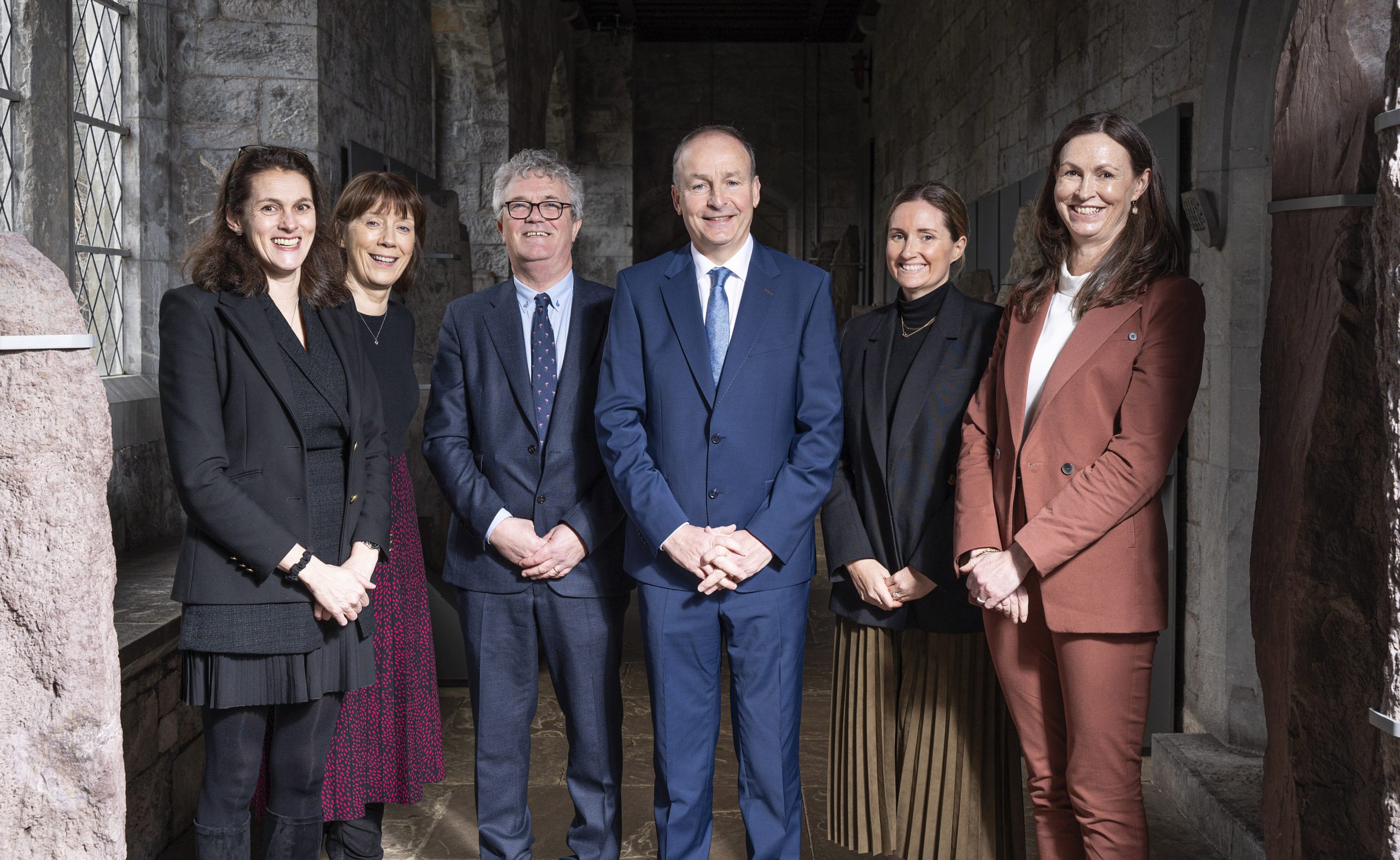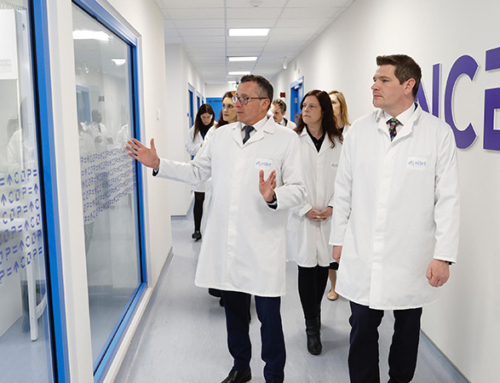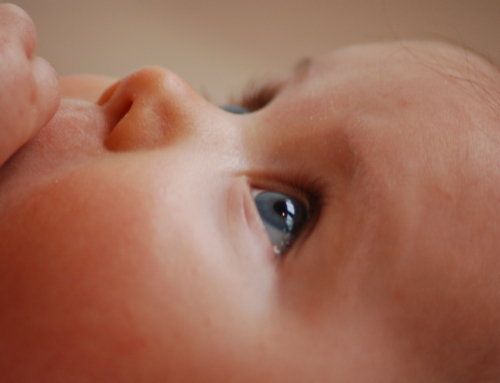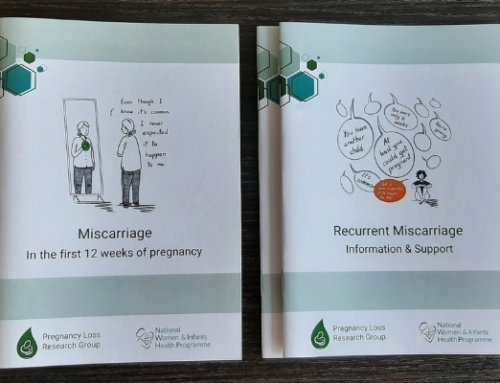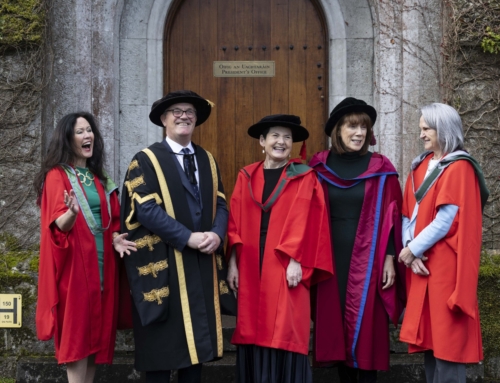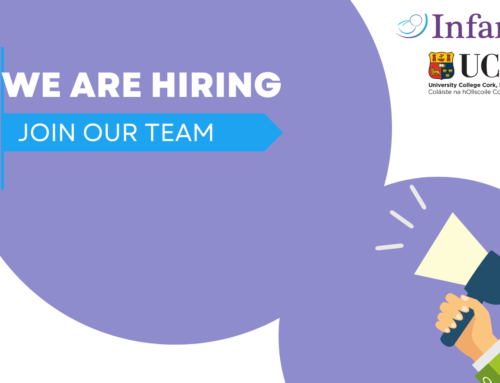- Groundbreaking partnership funded by SFI and Cerebral Palsy Foundation
Friday, March 22, 2024: The Tánaiste, Minister for Foreign Affairs and Minister for Defence, Micheál Martin TD, today launched a new €11.6 million research programme focused on Cerebral Palsy at University College Cork (UCC).
ELEVATE, a ground-breaking five-year initiative, has been funded under the Science Foundation Ireland (SFI) Strategic Partnership Programme (€5 million), with co-funding partner The Cerebral Palsy Foundation (CPF) providing support of over €6 million. The programme will be led by the Irish Centre for Maternal and Child Health Research (INFANT) at UCC, partnering with RCSI University of Medicine and Health Sciences, Trinity College Dublin and all the tertiary-level maternity hospitals in Ireland.
ELEVATE brings together a team of researchers and experts in early brain injury to create cutting-edge AI screening algorithms, devise novel detection methods, explore potential new treatments, and, most importantly, actively involve Cerebral Palsy-affected families in ongoing trials, education, and information platforms. The programme will also see the establishment of a Cerebral Palsy registry in Ireland, to track the rate of the condition for the first time, and enable access to the best research and clinical trials.
Launching the ELEVATE Programme, Tánaiste Micheál Martin TD, said: “I’m delighted to launch this ambitious new programme, which has the potential to transform lives and reshape the landscape of Cerebral Palsy research and care in Ireland. The ELEVATE strategic partnership programme marks a landmark investment and milestone in the collective efforts to address what is one of the most pressing challenges in healthcare. We stand on the cusp of a new era in Cerebral Palsy research.”
Cerebral Palsy is the most common childhood-acquired, lifelong physical disability, affecting about 17 million people worldwide. There is no known cure.
It is caused by abnormal development or damage to the brain before, during, or shortly after birth. Many individuals with Cerebral Palsy face significant and unnecessary challenges in their daily lives, including problems with movement, speech, and other body systems. An estimated 150 babies receive a Cerebral Palsy diagnosis in Ireland each year and an estimated 3,000 children and young people and 9,500 adults are living with Cerebral Palsy in Ireland.
But these diagnoses are often delayed, with devastating consequences for children and their families. Early intervention and the right care pathways make a significant difference in the long-term outcomes and quality of life for people living with Cerebral Palsy.
Speaking at the launch event, Dr Siobhan Roche, Director, Science for the Economy at Science Foundation Ireland, said: “SFI is proud to be able to support the ELEVATE programme which aims to make Ireland a world-leading hub for research and innovation in early brain injury and Cerebral Palsy. The potential impact of the ELEVATE programme is significant, with the active involvement of patients, clinicians and the Cerebral Palsy Foundation in this important research being key to improving the long-term outcomes for children and adults with early brain injury and cerebral palsy.”
Rachel Byrne, Executive Director of the CPF, said: “The ELEVATE team shares a vision of creating meaningful change in the lives of individuals living with Cerebral Palsy as well as their families. This partnership will be a game changer for the prevention, diagnosis and treatment of Cerebral Palsy in Ireland. At the Cerebral Palsy Foundation we are committed to accelerating innovation and pave the way for personalised, evidence-based interventions at the most crucial time in a child’s life.”
President, University College Cork, Professor John O’Halloran, commented: “It’s fantastic to see INFANT spearhead the ELEVATE Strategic Partnership Programme at University College Cork. This programme bolsters our UCC Futures Children collective and advances our commitment to research excellence, global engagement and societal impact. We are very appreciative of Science Foundation Ireland and The Cerebral Palsy Foundation’s support, which highlights the importance of fostering innovation and collaboration to address real-world challenges.”
Professor John F. Cryan, UCC Vice President for Research and Innovation said: “Congratulations to INFANT on receiving this significant award that will tackle one of the most common childhood-acquired disabilities in the world. UCC’s research expertise in the UCC Futures areas of Future Ageing & Brain Science, Children, and AI & Data Analytics will enable this project to improve prevention and treatment methods for Cerebral Palsy in Ireland, improving the long-term outcomes and quality of life for people living with Cerebral Palsy.”
ELEVATE will be co-led by Prof Geraldine Boylan (Neurophysiologist and Professor of Neonatal Physiology at UCC) and Prof Deirdre Murray (Consultant Pediatrician and Chair in Early Brain Injury and Cerebral Palsy at UCC).
INFANT Director, Professor Geraldine Boylan, stated: “We are very excited to lead this transformative research programme at INFANT alongside our partners and are very grateful to SFI and CPF for their support. Families affected by Cerebral Palsy are integral to our work, guiding us at every stage. By enhancing the prevention, detection, and treatment of early brain injury and Cerebral Palsy in Ireland, we are dedicated to providing better outcomes for both the child and the family.”
Photography: Ger McCarthy
Watch the launch highlight video here: https://www.youtube.com/watch?v=s-1o2C0PKrk
L TO R: Photo:
Prof Deirdre Murray Chair Early Brain Injury and Cerebral Palsy, Professor Geraldine Boylan, INFANT Director, UCC President, Professor John O’Halloran , An Tánaiste, Micheál Martin Minister for Foreign Affairs and Minister for Defence Rachel Byrne, Executive Director of the Cerebral Palsy Foundation and Dr Siobhán Roche, SFI Director of Science for the Economy ,Tánaiste launches a new €11.6 million Cerebral Palsy research programme at University College Cork.


